Politics
Nigeria’s Political Stakeholders Condemn Tinubu’s State of Emergency in Rivers, Call for Immediate Reversal
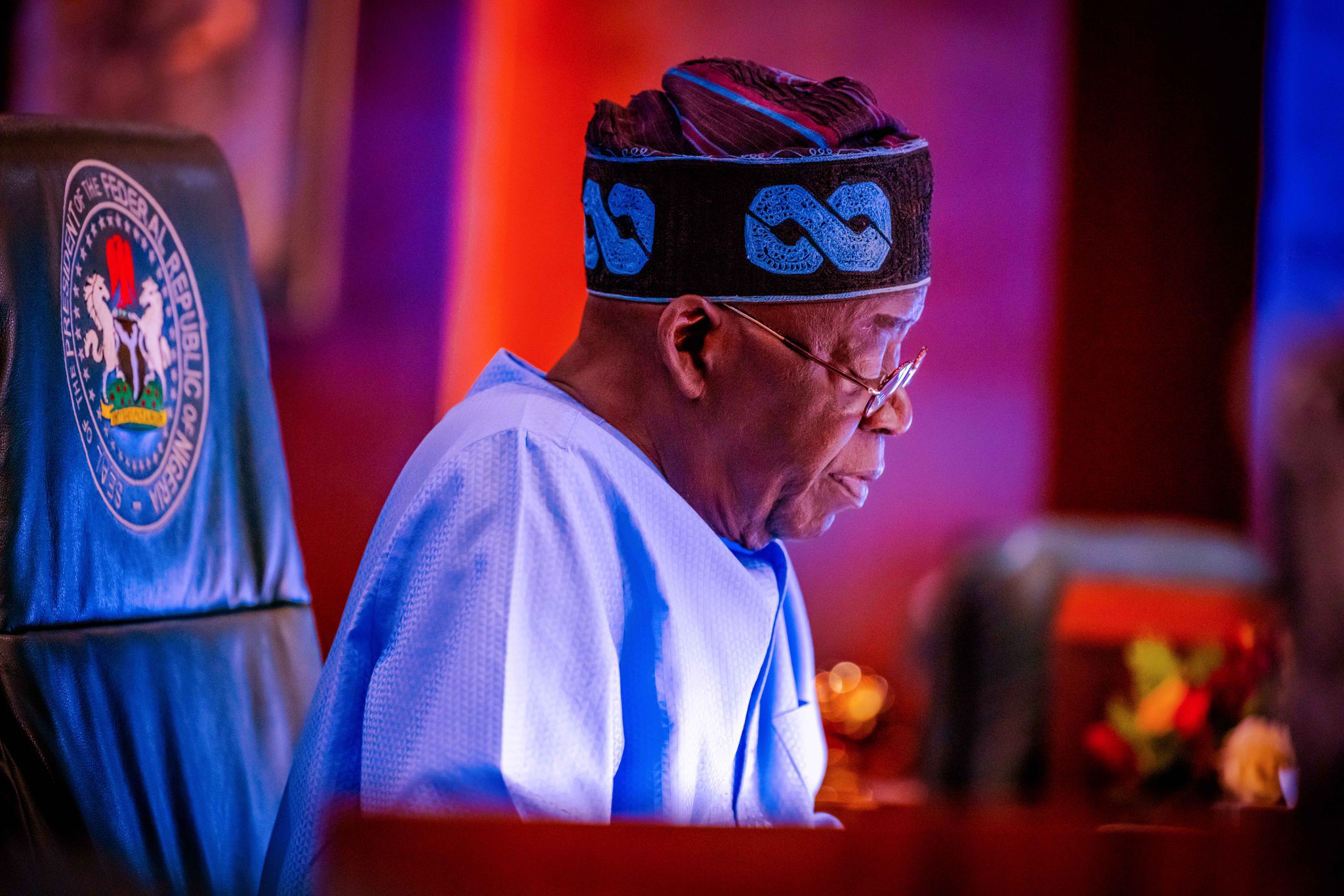
By Our Correspondent
In a strong rebuke of President Bola Ahmed Tinubu’s declaration of a state of emergency in Rivers State, a coalition of political stakeholders and leaders from across Nigeria has described the move as unconstitutional, urging its immediate reversal.
At a joint press conference held on Thursday, March 20, 2025, in Abuja, the group condemned what they termed an “illegal suspension” of Governor Siminalayi Fubara, Deputy Governor Ngozi Odu, and the Rivers State House of Assembly. The stakeholders argued that Tinubu’s proclamation was an attempt to subvert democracy and impose federal control over a duly elected state government.
A Dangerous Precedent
The political crisis in Rivers State, which has been brewing for months, intensified following a recent Supreme Court ruling on the legitimacy of the state’s legislative assembly. The stakeholders noted that rather than allowing the ruling to be implemented through constitutional means, the federal government had resorted to what they described as an unlawful power grab.
“Ordinarily, all parties involved would have been expected to follow laid-down procedures, motivated by good faith, to quickly implement the judgment of the highest court of the land,” the group stated. “Governor Fubara has shown a willingness to abide by the ruling despite provocations from opposing quarters.”
They accused the president of taking sides in the political battle, using the instrument of state power to undermine the will of Rivers people.
Constitutional Violations Highlighted
The coalition laid out a detailed argument on why the emergency rule in Rivers State was illegal, citing multiple violations of the 1999 Constitution.
1. Unlawful Removal of Elected Officials
The group emphasized that the president has no constitutional power to remove a governor, deputy governor, or state assembly. Section 188 of the Nigerian Constitution outlines a clear process for impeachment, which must be initiated and carried out by the state legislature—not through executive fiat.
2. Misuse of Section 305 on Emergency Rule
They argued that while the president can declare a state of emergency under Section 305, it does not grant him the power to suspend elected officials or dissolve democratic structures.
“The Constitution is clear: a state of emergency can only be declared in extreme situations that threaten national security, such as war, natural disasters, or a total breakdown of law and order. None of these conditions exist in Rivers State,” they stated.
3. Lack of National Assembly Approval
The constitution mandates that any emergency proclamation must be approved by a two-thirds majority of the National Assembly within a specified time frame. The group warned lawmakers against endorsing what they described as an illegal act.
“If this illegal action is presented before the National Assembly, we call on patriotic Senators and Representatives to reject it outright. The legislature must not be used as a rubber stamp to legitimize an unconstitutional power grab,” they declared.
4. Ignoring Legal Alternatives
The stakeholders pointed out that the Constitution provides alternative mechanisms for resolving political disputes within a state. Under Section 11, the National Assembly can assume legislative powers if a State Assembly is unable to function. However, even in such cases, the executive leadership of the state remains intact.
“If the issue was the dysfunction of the Rivers State House of Assembly, the president could have encouraged the National Assembly to intervene. But even under such an intervention, the governor and deputy governor cannot be removed,” they asserted.
A Manufactured Crisis for Political Control
The group described the emergency rule as a calculated move to weaken Governor Fubara’s administration and strengthen federal control over Rivers State, a vital economic hub due to its oil wealth.
They dismissed claims that the move was to curb pipeline vandalism, arguing that security agencies under the federal government already have full control over such matters.
“If security breaches are the concern, the first question should be: Who controls the police, the military, and the DSS? The Governor or the President?” they asked rhetorically.
Demands and Call to Action
In response to what they described as an attack on democracy, the stakeholders issued a series of demands:
1. Immediate Reversal – President Tinubu must revoke the proclamation and reinstate all suspended officials.
2. Legislative Resistance – The National Assembly must reject any attempt to approve the emergency rule.
3. Judicial Intervention – The courts must act swiftly to strike down the declaration as unconstitutional.
4. Mass Action – Nigerians, civil society groups, and political leaders must stand firm against the erosion of democratic principles.
They warned that if this move is allowed to stand, it would set a dangerous precedent where any governor could be arbitrarily removed under the guise of emergency rule.
A Threat to National Stability
The coalition concluded by cautioning the federal government against escalating political tensions in the Niger Delta, emphasizing that a peaceful Rivers State is crucial to national economic stability.
“The federal government should not manufacture crises that could destabilize Nigeria’s economic lifeline,” they warned.
As the political standoff continues, all eyes are now on the National Assembly, the judiciary, and the people of Rivers State to determine the next phase of the unfolding constitutional battle.
Politics
BREAKING: Former Deputy Minority Leader, S.A Political, Hon. Muhammad A. Bello Dumps APC Joint ADC in Gombe
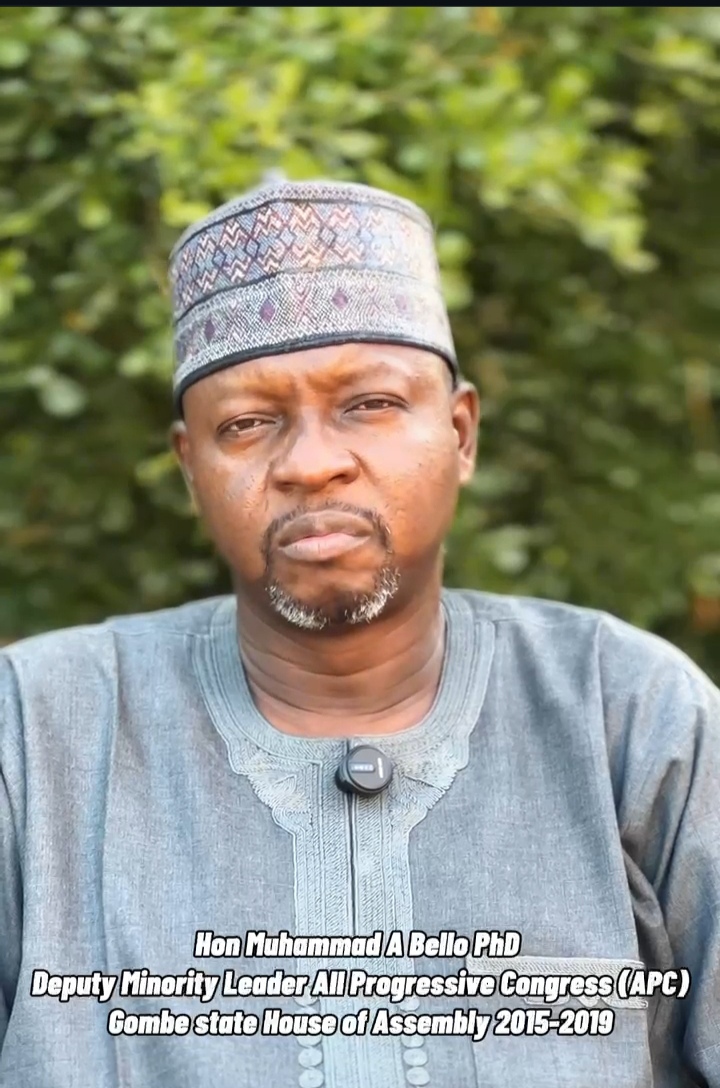
By Editor Daily Facts
In a major political development that could shake up the local political landscape in Gombe State, Hon. Muhammad A. Bello, PhD, former Deputy Minority Leader of the Gombe State House of Assembly (2015–2019), has formally resigned his membership from the All Progressives Congress (APC).
In a resignation letter dated August 4, 2025, and addressed to the APC Chairman of Bolari East Ward, Gombe Local Government, Dr. Bello cited “personal reasons” for his decision to leave the ruling party. The letter, which has since gone viral within political circles in the state, marks the end of an era for a politician widely regarded as one of the founding pillars of the APC in Gombe South.
> “This is to officially tender my resignation from the All Progressives Congress (APC) with immediate effect due to personal reasons,” he wrote.
Hon. Muhammad A. Bello was the first lawmaker to represent Gombe South Constituency under the APC platform when the party emerged as a political force in the state. He also served as Deputy Minority Leader during his term in the State Assembly and was later appointed the first Special Adviser on Political Matters to the Governor of Gombe State under the APC-led administration.
In the resignation letter, Dr. Bello expressed his appreciation to the party, saying:
> “I find it imperative to say a big thank you to the leadership and members of the party for the rare opportunity given to me.”
Political Implications
Although Dr. Bello did not disclose his next political move, insiders suggest that his exit from the APC may not be unconnected to ongoing internal crises and shifting alliances within the party structure at both state and national levels. His resignation could also signal a realignment ahead of the 2027 general elections.
Political observers believe that his departure could influence other key stakeholders in the Gombe South axis, especially those who consider him a grassroots mobilizer and voice of political experience in the region.
Attempts to reach APC officials in the state for official comments were unsuccessful as of press time, but party loyalists in Bolari East Ward expressed shock over the development, calling it “a big loss” to the party.
As the political atmosphere continues to heat up in Gombe and across Nigeria, Dr. Bello’s resignation adds to the growing list of notable defections that may reshape the balance of power ahead of future electoral contests.
Politics
Democracy Not for Sale Ralph Nwosu: Former ADC Chairman I Chose Nigeria Over ₦10bn, Three Ministerial Positions
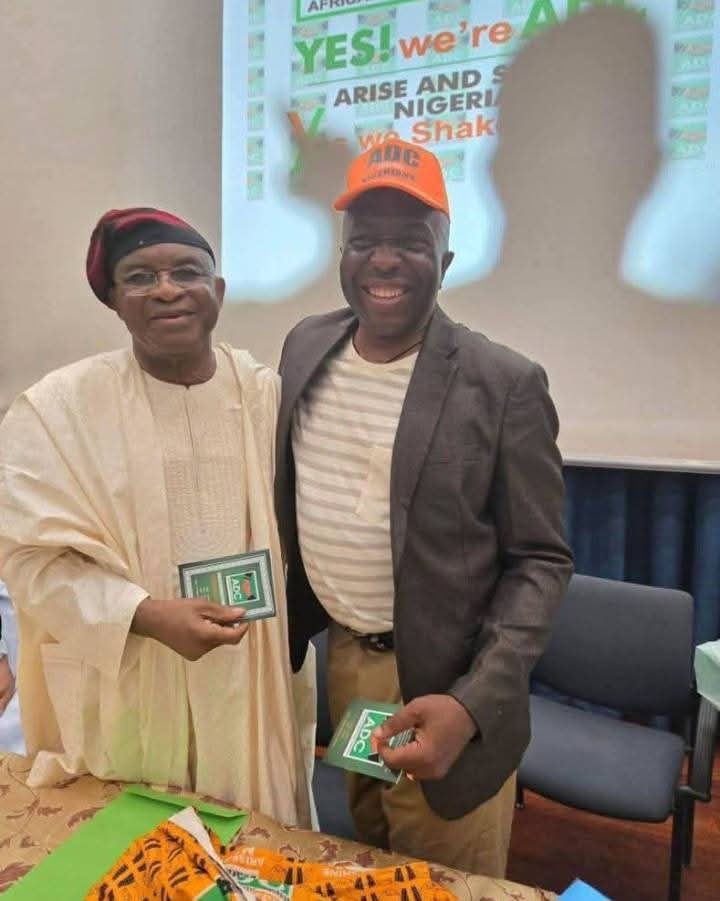
By Our Correspondent
In a dramatic revelation that has sparked national conversation, the immediate past National Chairman of the African Democratic Congress (ADC), Chief Ralph Okey Nwosu, has disclosed that he turned down lucrative offers—including three ministerial slots and a staggering ₦10 billion—in exchange for halting the party’s role as the principal opposition coalition platform in the country.
Addressing newsmen in Abuja on Wednesday, Nwosu stated that despite pressure from powerful political figures and close associates, he made the “difficult but patriotic decision” to prioritize Nigeria’s democratic stability over personal gain.
“I do not want Nigeria to become a one-party state. Even though I was advised by people close to me not to give up my position as National Chairman, I chose Nigeria first,” Nwosu declared.
The former chairman, who led the ADC for over a decade, is credited with transforming the party into a credible third force in Nigerian politics. Under his leadership, the ADC became a strategic platform for a coalition of opposition parties and civil society groups seeking to challenge the dominance of the ruling party.
According to Nwosu, the offer to step down the coalition move came at a critical time when democratic principles in Nigeria were being tested. He described the attempted inducement as part of a larger effort to weaken the country’s multiparty system.
“Today, I am happy as a fulfilled man who is paying the price for a better Nigeria,” he added, visibly emotional.
The Coalition for ADC, a growing alliance of pro-democracy movements, political parties, and stakeholders, has since commended Nwosu for his integrity and sacrifice. Many see his decision as a bold stand against corruption and political manipulation.
Political observers believe Nwosu’s stance has not only preserved the credibility of the ADC but has also inspired a renewed push for a more vibrant and united opposition in the country.
Reactions have begun to pour in from political analysts, civil society groups, and party leaders, with many hailing Nwosu’s action as “historic” and “courageous,” especially in a climate where political compromises are often influenced by personal benefit.
With the 2027 general elections on the horizon, Nwosu’s revelation is expected to energize coalition efforts and encourage broader participation from disenchanted Nigerians seeking credible alternatives.
Politics
I’m Not Running in 2027 Engineer Aliyu Kombat-My Mission Goes Beyond Politics
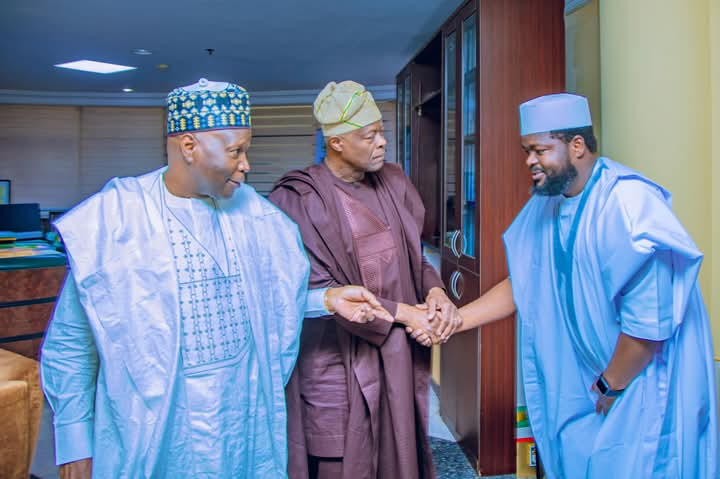
By Our Correspondent
In a heartfelt and reflective press statement released Monday, renowned philanthropist and political figure, Engineer Aliyu Muhammad Kombat, has formally announced his decision not to contest in the 2027 General Elections, despite widespread calls and public encouragement urging him to do so.
Opening his statement with deep gratitude to Almighty Allah and the people of Gombe State, Kombat expressed appreciation for the unwavering support he has received over the years, calling it a “constant source of strength and inspiration.”
“I remain deeply humbled and eternally grateful for the love you have shown me through your words, actions, and persistent belief in my capacity to serve,” he said.
After what he described as “deep reflection and wide consultations with my family, mentors, elders, political allies, and trusted friends,” Kombat revealed that the decision to step aside from the 2027 political contest was not made lightly.
“I acknowledge your disappointment, and I ask for your understanding and prayers,” he said, in a direct appeal to supporters who had anticipated his candidacy.
While stepping back from the electoral race, Kombat made it clear that he remains loyal to the All Progressives Congress (APC) and pledged full support toward the party’s continued growth at all levels.
“I remain firmly committed to the ideals of my party, the APC, and I pledge my total support for the continuous progress of the party at all levels,” he affirmed.
Kombat, who is also the founder of the Velocity Humanitarian Foundation, reassured the public that his withdrawal from electoral politics will not in any way affect the Foundation’s operations.
“That noble initiative remains alive, active, and fully committed to its core mission — delivering compassion, empowerment, and dignity to the most vulnerable in our society,” he said.
The Velocity Humanitarian Foundation has gained regional recognition for its focus on youth empowerment, healthcare outreach, educational support, and food security initiatives, especially in underserved communities across Gombe State and beyond.
In closing, Kombat left the door open for future political engagement, stating:
“Should the future present another opportunity to serve, under compelling and unavoidable circumstances, I will answer that call with the same spirit of duty and sacrifice that has always guided me.”
As reactions pour in across political and civil society circles, many have praised Engineer Kombat for his humility, sincerity, and unwavering commitment to humanitarian work, even outside of the political spotlight.
The statement has already begun generating wide interest across political and civic platforms in Gombe and beyond, with many describing it as a “rare act of selfless leadership in today’s political climate.”
END
-
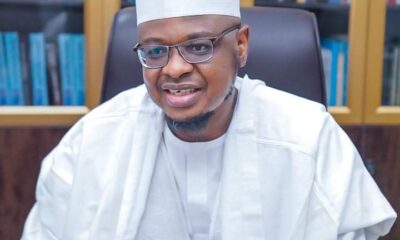
 Leadership12 months ago
Leadership12 months agoBreaking: African Union Appoints Pantami as Co-Chair of the 4th Industrial Revolution Policy Council
-

 Politics1 year ago
Politics1 year agoFormer Gombe State APC Promoters Forum Chairman Attacked Following Political Commentary
-
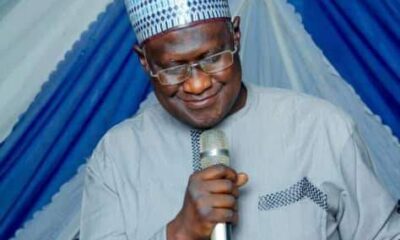
 Appointment10 months ago
Appointment10 months agoGombe State Indigene, Appointed New Vice Chancellor (ATBU)
-
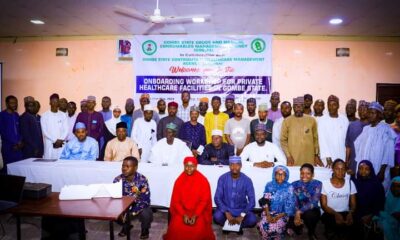
 Health1 year ago
Health1 year agoGombe State Organizes Onboarding Workshop for Private Healthcare Facilities
-
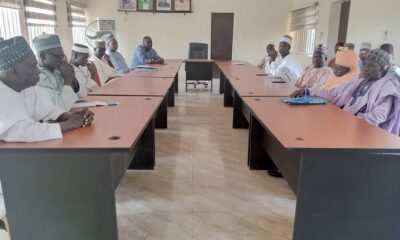
 Water1 year ago
Water1 year agoGombe Government Mobilizes Stakeholders to Combat Illegal Water Connections
-
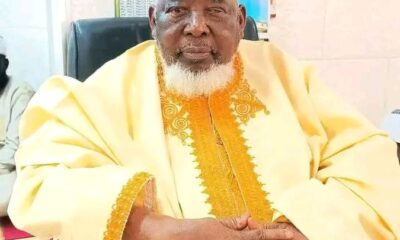
 Death5 months ago
Death5 months agoProminent Nigerian Islamic Scholar, Sheikh Sa’idu Hassan Jingir, Passes Away
-
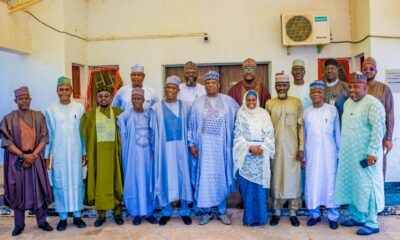
 Politics1 year ago
Politics1 year agoGombe State Inaugurates Human Capital Development Council
-
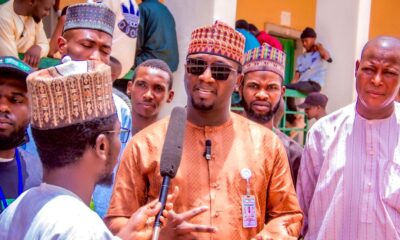
 Politics1 year ago
Politics1 year agoGombe State Launches Presidential Palliative Program (PPP) to Aid Small Businesses
